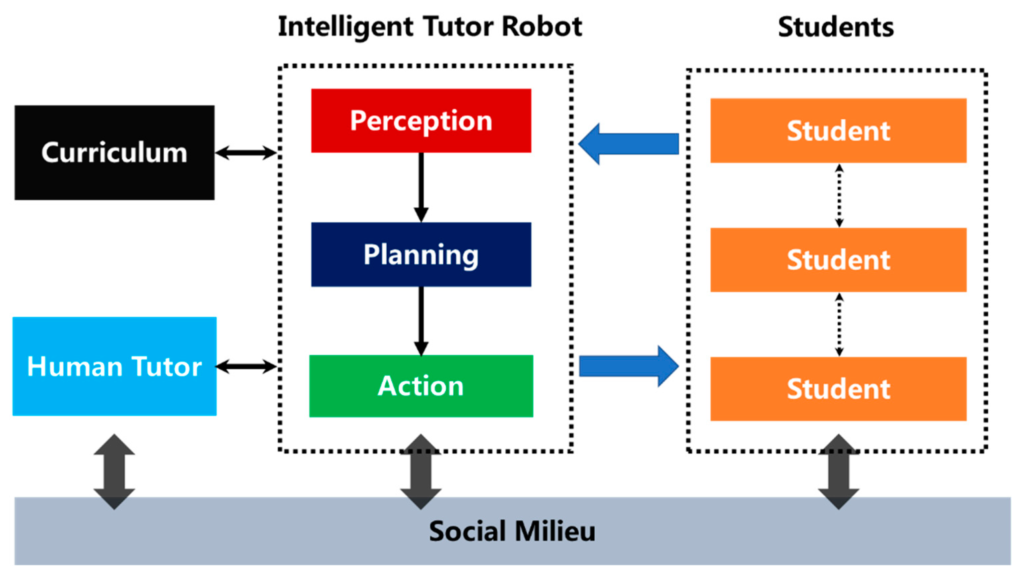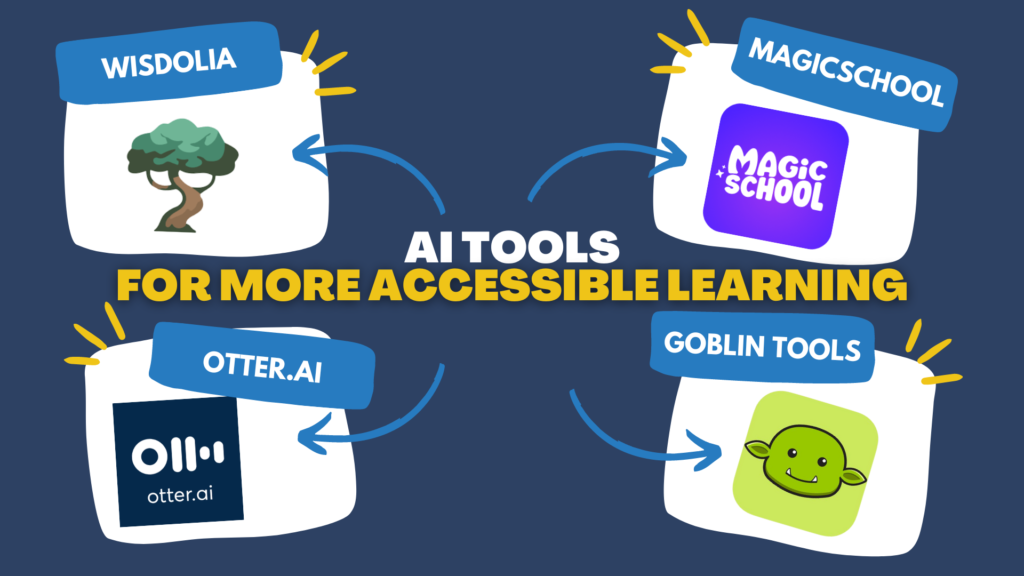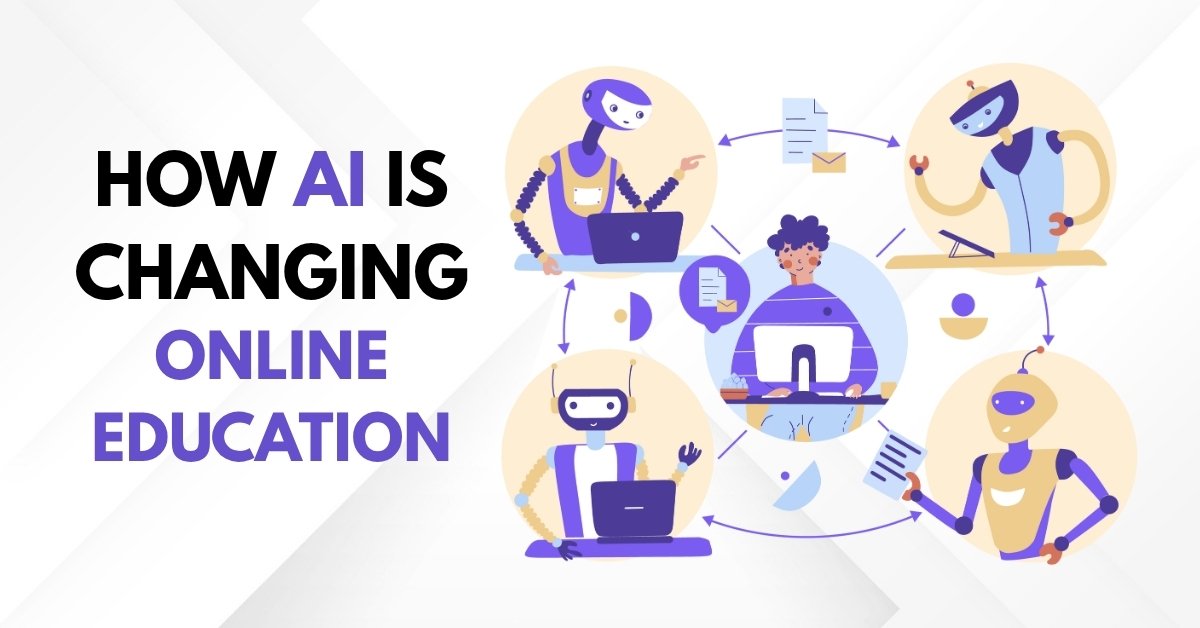Introduction: The AI-Powered Learning Revolution
Artificial Intelligence (AI) is no longer a futuristic concept—it’s a present-day reality reshaping the landscape of online education. From personalized learning experiences to intelligent tutoring systems, AI is revolutionizing how we learn, teach, and interact with educational content. As platforms like Coursera, Udemy, and Khan Academy integrate AI-driven features, learners worldwide are experiencing more tailored, efficient, and engaging educational journeys.
In this comprehensive guide, we’ll explore the multifaceted ways AI is transforming online education, the benefits and challenges it presents, and what the future holds for learners and educators alike.
Table of Contents
- Personalized Learning Experiences
- AI-Powered Tutoring Systems
- Adaptive Learning Platforms
- Streamlining Administrative Tasks
- Enhancing Accessibility and Inclusivity
- Ethical Considerations and Challenges
- Future Outlook: What’s Next for AI in Online Education
- FAQs
- Conclusion
Personalized Learning Experiences
AI enables the creation of personalized learning paths by analyzing individual learner data, including performance, preferences, and learning styles. This data-driven approach allows educational platforms to tailor content, pacing, and assessments to each student’s unique needs.
Key Benefits:
- Customized Content Delivery: AI algorithms recommend resources that align with a learner’s progress and interests.
- Adaptive Assessments: Quizzes and tests adjust in real-time based on student responses, ensuring appropriate difficulty levels.
- Feedback and Insights: Immediate, personalized feedback helps learners understand their strengths and areas for improvement.

AI-Powered Tutoring Systems
Intelligent tutoring systems (ITS) leverage AI to provide real-time assistance, answer questions, and offer explanations, mimicking one-on-one tutoring experiences.WorkRamp
Notable Features:
- 24/7 Availability: Learners can access help anytime, breaking geographical and time barriers.
- Interactive Learning: AI tutors engage students through conversational interfaces, enhancing understanding.
- Progress Tracking: Continuous monitoring allows for timely interventions and support.

Adaptive Learning Platforms
Adaptive learning platforms utilize AI to adjust content and learning paths based on real-time analysis of student performance. This dynamic approach ensures that learners receive the right support at the right time.
Advantages:
- Efficiency: Focuses on areas where the learner needs improvement, optimizing study time.
- Engagement: Keeps learners motivated by presenting appropriately challenging material.
- Scalability: Supports large numbers of students with individualized learning experiences.MindgraspUNESCO+3michiganvirtual.org+3provost.wsu.edu+3sanalabs.com

Streamlining Administrative Tasks
AI automates various administrative functions, allowing educators to focus more on teaching and student engagement.
Streamlined Processes:
- Grading Automation: AI can assess assignments and provide feedback, reducing manual workload.
- Enrollment Management: Automated systems handle course registrations and scheduling.
- Resource Allocation: Predictive analytics assist in planning and distributing educational resources effectively.

Enhancing Accessibility and Inclusivity
AI technologies contribute to making online education more accessible to diverse learner populations.
Inclusive Features:
- Language Translation: Real-time translation services break down language barriers.
- Assistive Technologies: AI-powered tools aid learners with disabilities, such as text-to-speech and speech-to-text applications.
- Customized Learning Materials: Content can be adapted to suit various learning needs and preferences.

Ethical Considerations and Challenges
While AI offers numerous benefits, it also raises important ethical questions and challenges that need to be addressed.UNESCO+1University of Iowa+1
Key Concerns:
- Data Privacy: Ensuring the confidentiality and security of student data is paramount.
- Bias and Fairness: AI systems must be designed to avoid reinforcing existing biases.
- Transparency: Clear understanding of how AI makes decisions is necessary for trust and accountability.Online Education+17nypost.com+17@EconomicTimes+17UNESCO+6en.wikipedia.org+6nypost.com+6
Educational institutions and developers must work collaboratively to establish guidelines and frameworks that address these ethical considerations.
Future Outlook: What’s Next for AI in Online Education
The integration of AI in online education is poised to grow, with emerging trends indicating a more immersive and interactive learning environment.
Anticipated Developments:
- Virtual Reality (VR) and Augmented Reality (AR): Combining AI with VR/AR for experiential learning.
- Emotion Recognition: AI detecting learner emotions to adapt content delivery.
- Lifelong Learning Companions: AI systems supporting continuous education throughout an individual’s life.
FAQs
Yes, AI-powered assistive technologies, such as speech recognition and screen readers, significantly aid learners with disabilities, promoting inclusivity in education.
AI is designed to augment teaching by handling administrative tasks and providing personalized support, allowing educators to focus more on student engagement and instruction.
Conclusion
AI is undeniably transforming online education, offering personalized learning experiences, efficient administrative processes, and enhanced accessibility. As we navigate this evolving landscape, it’s crucial to balance technological advancements with ethical considerations, ensuring that education remains equitable and effective for all learners.
Author Profile
- Jiya Gupta
- At Learners View, we're passionate about helping learners make informed decisions. Our team dives deep into online course platforms and individual courses to bring you honest, detailed reviews. Whether you're a beginner or a lifelong learner, our insights aim to guide you toward the best educational resources available online.
Latest entries
 Course PlatformsOctober 3, 2025We Asked 10 Experts: What’s the Best Online Course You’ve Ever Taken?
Course PlatformsOctober 3, 2025We Asked 10 Experts: What’s the Best Online Course You’ve Ever Taken? Career GrowthOctober 2, 2025MIT OpenCourseWare Review: Can Free Courses Compete with Paid Ones?
Career GrowthOctober 2, 2025MIT OpenCourseWare Review: Can Free Courses Compete with Paid Ones? Course PlatformsOctober 1, 2025How Online Learning Changed My Career – Real Student Stories
Course PlatformsOctober 1, 2025How Online Learning Changed My Career – Real Student Stories Course PlatformsSeptember 16, 2025Best Graphic Design Courses for Freelancers
Course PlatformsSeptember 16, 2025Best Graphic Design Courses for Freelancers




